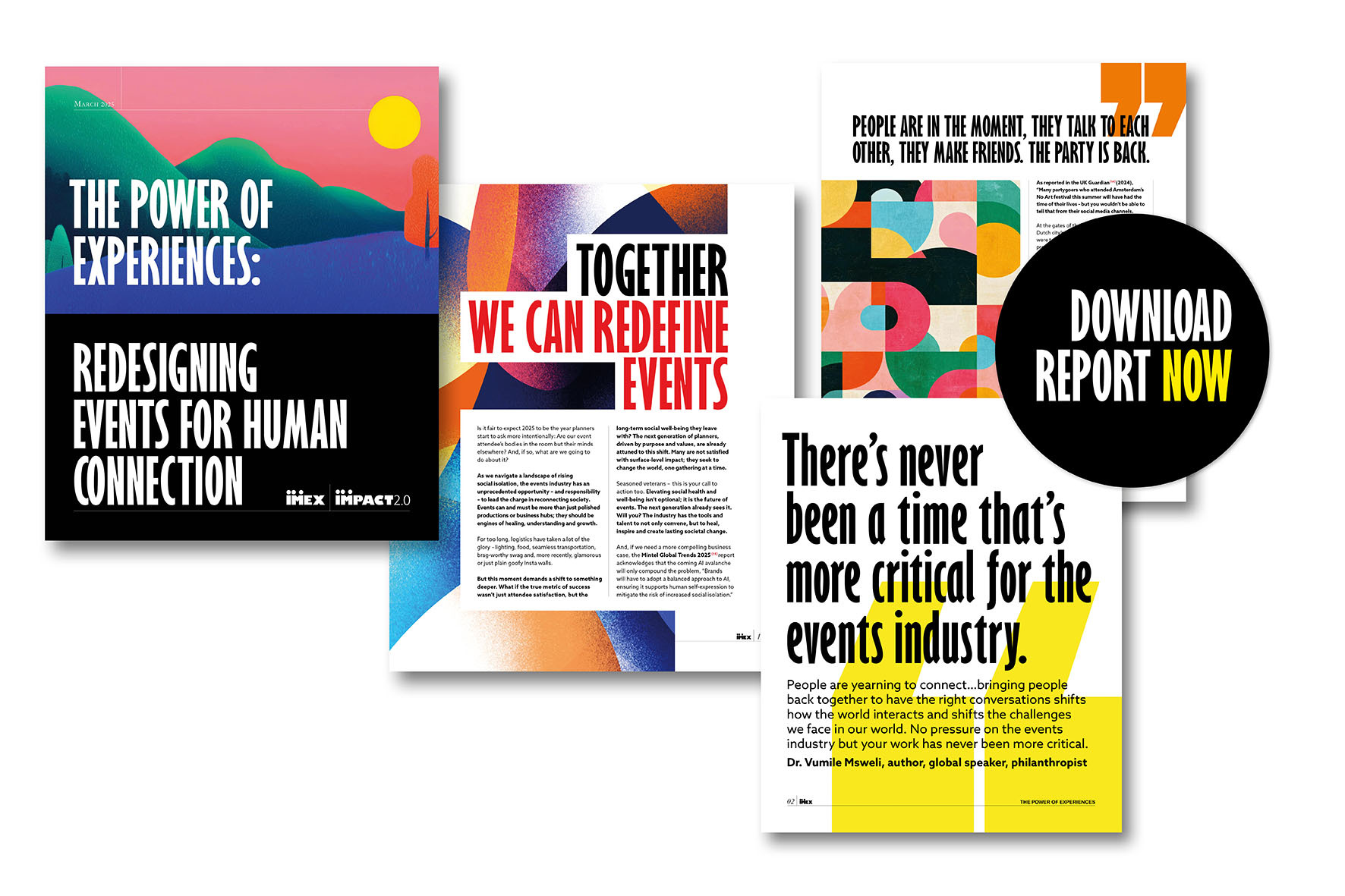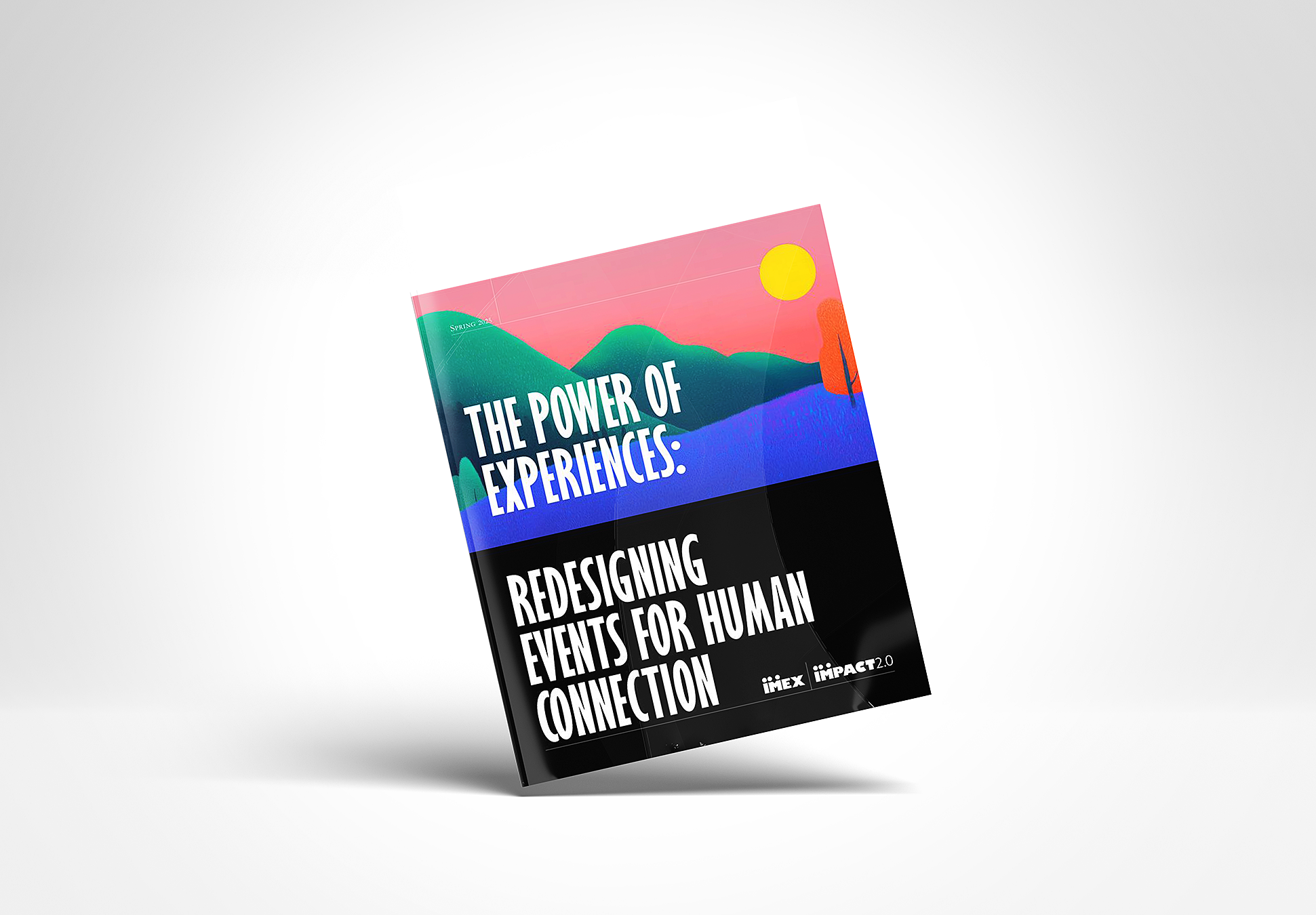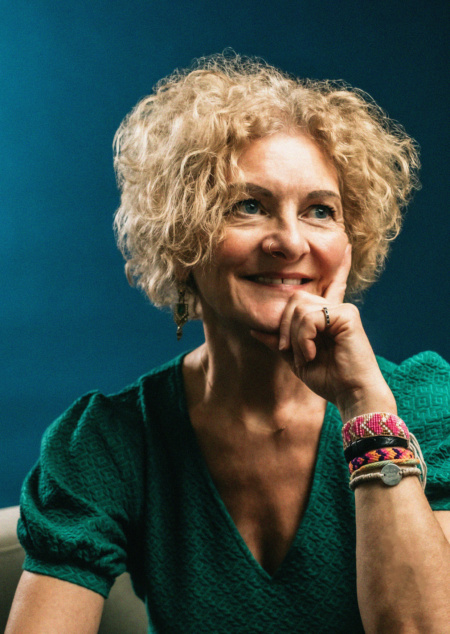Loneliness is now considered a public health crisis. Remote work, endless video calls, and the creeping dominance of digital interactions have left many of us feeling more disconnected than ever. According to Gallup, only 23% of employees worldwide feel engaged at work, while 21% report regular loneliness and disconnection.
In a world where trust is eroding and attention spans are shrinking, IMEX's report, The power of experiences: Redesigning events for human connection asks, what if live events—those well-designed, carefully curated, in-person experiences—are exactly what we need to heal, reconnect, and thrive?
Download The power of experiences: Redesigning events for human connection now
The future of events: A new ROI?
For years, the events industry has measured success in registration numbers, brand awareness, and networking opportunities. But what if we redefined success? What if we measured an event’s impact not just in leads and revenue, but in something even more valuable: human connection, trust, and shared experiences?
Harvard-trained social scientist Kasley Killam calls social health “the missing dimension of well-being.” Supporting this, former US Surgeon General, Dr Vivek Hallegere Murthy, says “Community is a powerful source of life satisfaction and life expectancy. It’s where we know each other, help each other, and find purpose in contributing to each other’s lives. These core pillars of community—relationships, service and purpose—are powerful drivers of fulfillment. They can also significantly influence health outcomes.”
So, what does this mean for event professionals, marketers, and business leaders? It means the future of events isn't just about logistics and production—it’s about a bigger human need, designing experiences that foster genuine connection, belonging, trust, and shared purpose.
What the data says
Lonely employees miss five more workdays per year than others. (Cigna)
Employees with a best friend at work are seven times more engaged and perform better. (Gallup)
In the UK, consumers aged 18-34 are spending 67% more than the national average on experiences. (Heart of London Business Alliance)
These numbers paint a clear picture: people are craving real, meaningful interactions. And the events industry is in a prime position to deliver them.

Download The power of experiences: Redesigning events for human connection now
How do we redesign events for connection?
The shift is already happening. Some of the most forward-thinking events are:
Rethinking networking. Goodbye, awkward cocktail hours. Hello, intimate, curated conversations and shared experiences based on common values.
Creating spaces for real talk. Safe, open spaces for discussions on mental health, leadership challenges, and personal issues are making waves.
Designing for happiness and joy. Research shows that happiness is a skill—one that can be cultivated through intentional social interactions.
Measuring emotional engagement, not just attendance. New technology like facial sentiment analysis is helping organizers track emotional engagement, proving that a well-designed experience can genuinely uplift attendees.
The bottom line
Events have the power to transform lives, not just industries. The smartest companies and event professionals are already embracing this shift—are you?
We’ve produced a 14-page report which reveals how event professionals can design experiences that drive both business success and amp up human connection.

In an increasingly divided world, isn’t that what we all long for?


